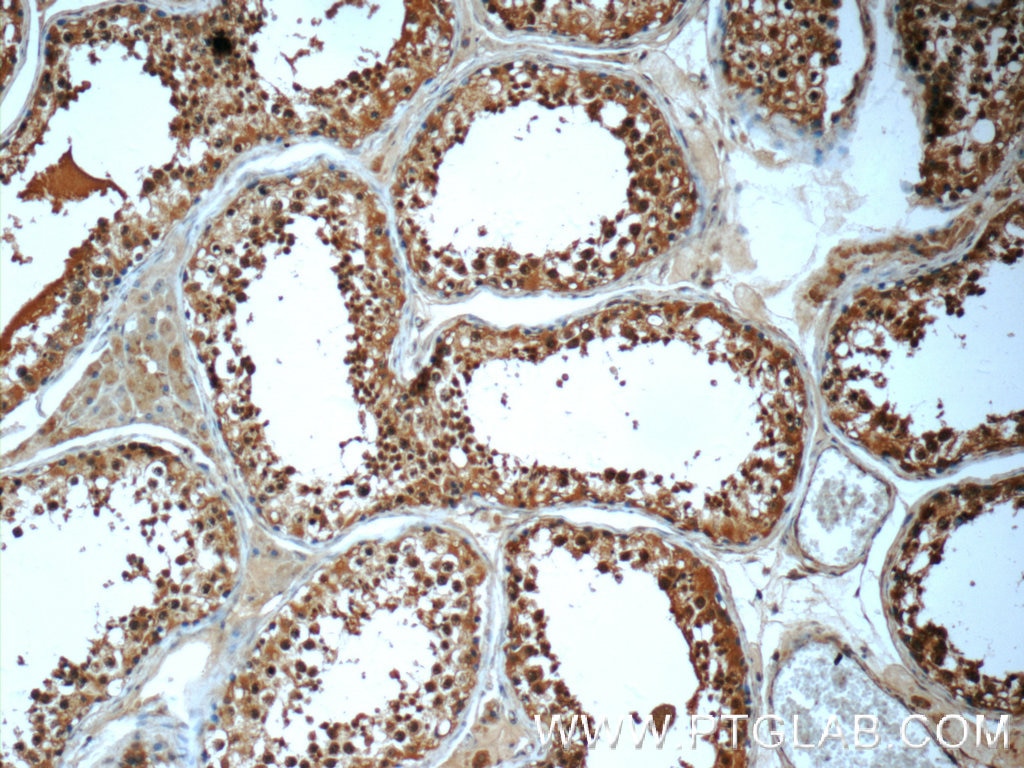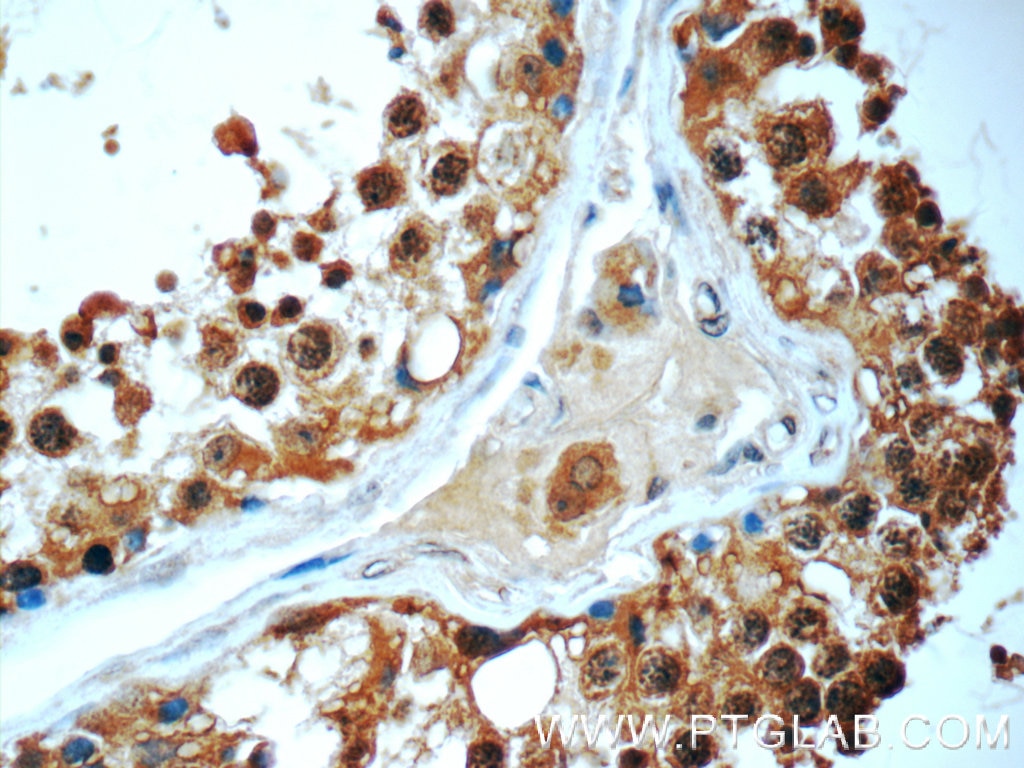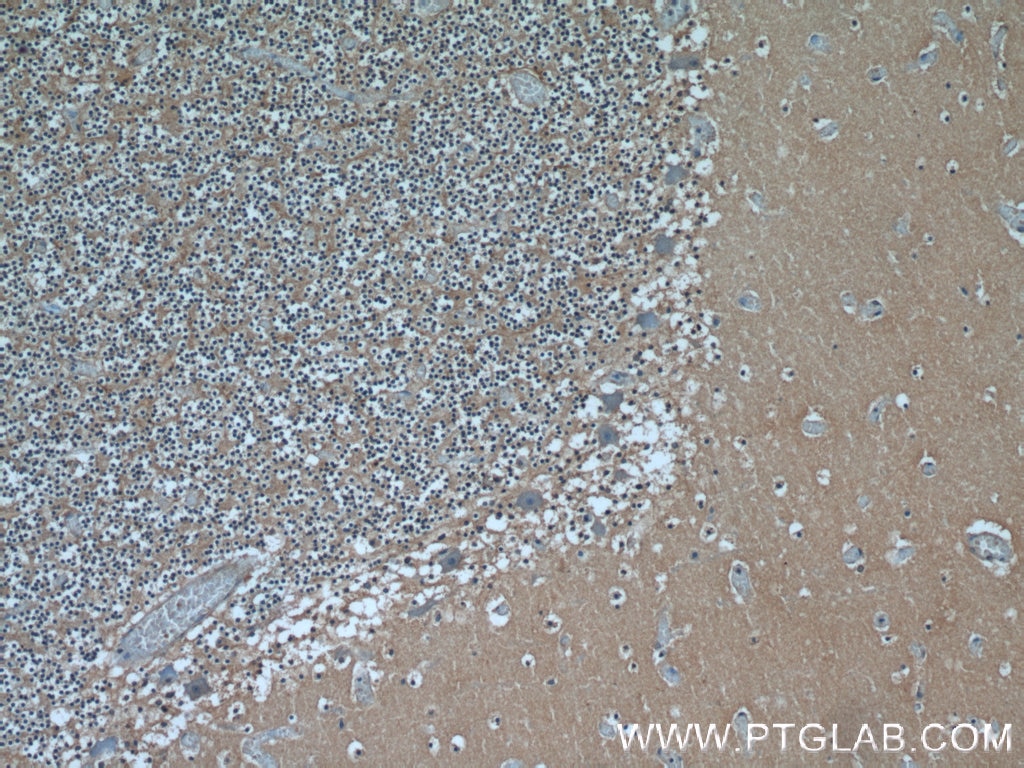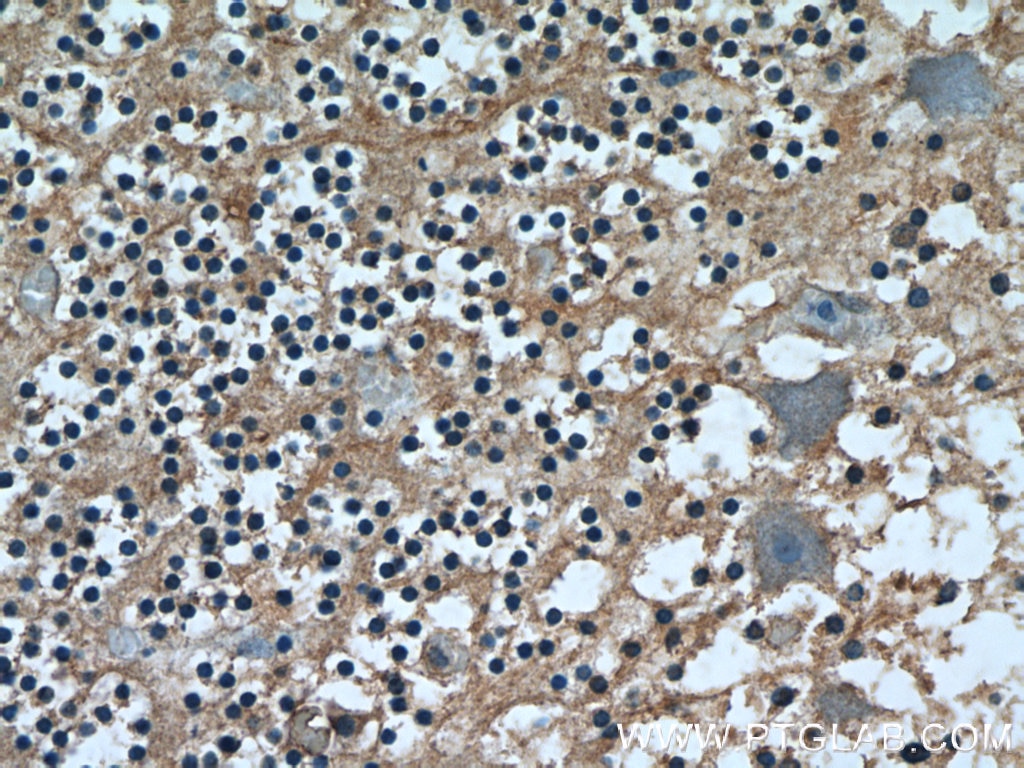Tested Applications
| Positive IHC detected in | human testis tissue, human cerebellum tissue Note: suggested antigen retrieval with TE buffer pH 9.0; (*) Alternatively, antigen retrieval may be performed with citrate buffer pH 6.0 |
Recommended dilution
| Application | Dilution |
|---|---|
| Immunohistochemistry (IHC) | IHC : 1:20-1:200 |
| It is recommended that this reagent should be titrated in each testing system to obtain optimal results. | |
| Sample-dependent, Check data in validation data gallery. | |
Published Applications
| IF | See 1 publications below |
Product Information
24741-1-AP targets HYDIN in IHC, IF, ELISA applications and shows reactivity with human samples.
| Tested Reactivity | human |
| Cited Reactivity | mouse |
| Host / Isotype | Rabbit / IgG |
| Class | Polyclonal |
| Type | Antibody |
| Immunogen |
CatNo: Ag10732 Product name: Recombinant human HYDIN protein Source: e coli.-derived, PET28a Tag: 6*His Domain: 22-366 aa of BC028351 Sequence: MTSRRLEESMGAVQMGLVNMFKGFQSKVLPPLSPKVVTEEEVNRMLTPSEFLKEMSLTTEQRLAKTRLMCRPQIIELLDMGETTHQKFSGIDLDQALFQPFPSEIIFQNYTPCEVYEVPLILRNNDKIPRLVKVVEESSPYFKVISPKDIGHKVAPGVPSIFRILFTPEENKDYAHTLTCVTEREKFIVPIKARGARAILDFPDKLNFSTCPVKYSTQKILLVRNIGNKNAVFHIKTCRPFSIEPAIGTLNVGESMQLEVEFEPQSVGDHSGRLIVCYDTGEKVFVSLYGAAIDMNIRLDKNSLTIEKTYISMANQRTITIHNRSNIIAHFLWKVFATQQEEDRE Predict reactive species |
| Full Name | hydrocephalus inducing homolog (mouse) |
| Calculated Molecular Weight | 721aa,82 kDa; 5120aa,560 kDa |
| GenBank Accession Number | BC028351 |
| Gene Symbol | HYDIN |
| Gene ID (NCBI) | 54768 |
| RRID | AB_2879700 |
| Conjugate | Unconjugated |
| Form | Liquid |
| Purification Method | Antigen affinity purification |
| UNIPROT ID | Q4G0P3 |
| Storage Buffer | PBS with 0.02% sodium azide and 50% glycerol, pH 7.3. |
| Storage Conditions | Store at -20°C. Stable for one year after shipment. Aliquoting is unnecessary for -20oC storage. 20ul sizes contain 0.1% BSA. |
Background Information
HYDIN (hydrocephalus inducing homolog), also named as HYDIN1 or HYDIN2, is a 5121 amino acid protein, which localizes in the cell projection HYDIN exists as seven alternatively spliced isoforms and is expressed in the ciliated ependymal cell layer of heart ventricle. HYDIN is also found in ciliated epithelial cells of developing spermatocytes, oviduct and bronchi and is required for ciliary motility. HYDIN gene mutation is involved in Ciliary dyskinesia primary 5.
Protocols
| Product Specific Protocols | |
|---|---|
| IHC protocol for HYDIN antibody 24741-1-AP | Download protocol |
| Standard Protocols | |
|---|---|
| Click here to view our Standard Protocols |










